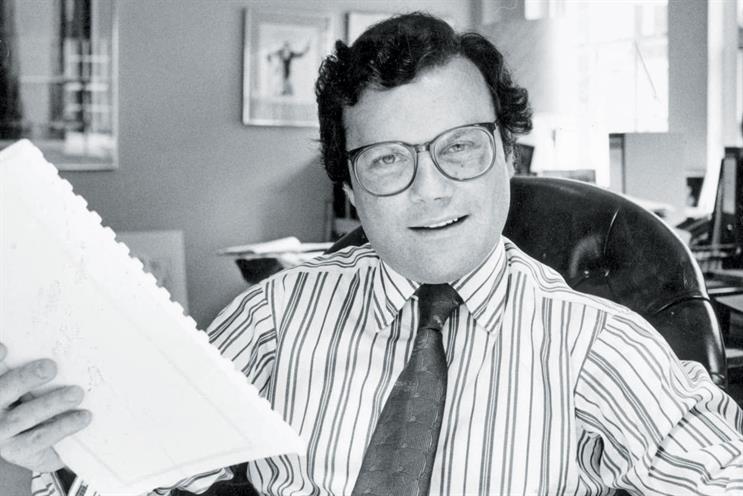Media Week first hit the newsstands on 8 February 1985, filling a big media-shaped hole in the trade press. On 9 May, Wire and Plastic Products Ltd announced that Preston Rabl and I had invested in the business - bringing "new ideas for expansion", to quote the release.
WPP wasn’t, however, really on Media Week’s radar until the JWT and Ogilvy acquisitions in 1987and 1989. The issue of 28 April 1989 brought the news that "City sources this week said such a bid [for Ogilvy] was not expected to materialise".
Although it seems its predictive powers were occasionally lacking, Media Week timed its entrance impeccably. The UK media scene of the mid-80s was fertile territory for the ambitious young magazine.
Rupert Murdoch’s victory at the Battle of Wapping was about to lift the entire newspaper industry, including rivals who disliked News International and its pugnacious, non-conformist boss.
The first issue of Media Week carried a story about a new weekend title (the ill-fated News on Sunday). 1986 saw the launch of The Independent and Eddy Shah’s Today. Channel 4, the first new national TV station in nearly three decades, was still in its infancy.
In adland, media buyers and planners, ever more confident of their place in the world (and their worth), were beginning to declare UDI from their advertising agency "superiors". It was a critical step in the creation of the modern market, which delivers such tremendous value for clients.
On 7 April 1989, Media Week’s splash was "Media’s devolution: first steps at Saatchi". The story reported that "buying and detailed scheduling" was now being handled by Zenith, the new unit formed from the media departments of the different Saatchi agencies the year before.
We all take the benefits of scale for granted now, but it was a long and often painful march to get to where we are today. Although Media Week rightly said in May 1989 that "Media will rank high on Sorrell’s agenda", it wasn’t until 1997 that the media functions of Ogilvy and JWT were decoupled from the agencies and merged to form Mindshare. It took a while after that to really make it work. Group M came into being in 2003.
Critics like to carp about the power of today’s media buyers, but it was scale that redressed the balance between those who own and those who purchase media, and allowed us to get a better deal for our clients.
It also helped to professionalise the industry – both in terms of practice and reputation.
The health of the UK ad market owes much to the strength of its media investment management sector. Group M forecasts an industry-wide increase in adspend of 5.7 per cent in 2015, making the UK the leading growth market among the major mature economies.
The UK also boasts the world’s most advanced digital advertising market. At 47.8 per cent (including paid search) in 2014, Britain has the world’s highest online share of advertising. That figure is expected to rise to 50.6 per cent in 2015.
This, of course, reflects a much wider change in the media world. Today, the biggest recipient of our investment on behalf of clients is not a newspaper publisher or TV company but the quintessential new media owner: Google.
Nonetheless, the death of "traditional" media and "traditional" marketing services firms at the hands of the web giants continues to be postponed. Web-based technologies have been a net positive for organisations that have approached them not only as a challenge but also a huge opportunity.
Not that you would know it from the mood music, but we have a thriving, competitive media sector in the UK. The BBC, MailOnline and The Guardian are among the world’s most popular news sites, while others (notably The Times and Sunday Times) are pioneering new commercial models and showing that readers will pay for content online if the package is right.
Similarly, more than 25 years into the internet age, advertising and marketing services remains one of the most robust and consistently high-performing business sectors both here in the UK and globally.
Media Week has been an important voice throughout its history: championing all sides of the industry and, at the same time, keeping us on our toes.
Congratulations, and happy birthday from one 30-year-old to another.
Sir Martin Sorrell is the chief executive of WPP


